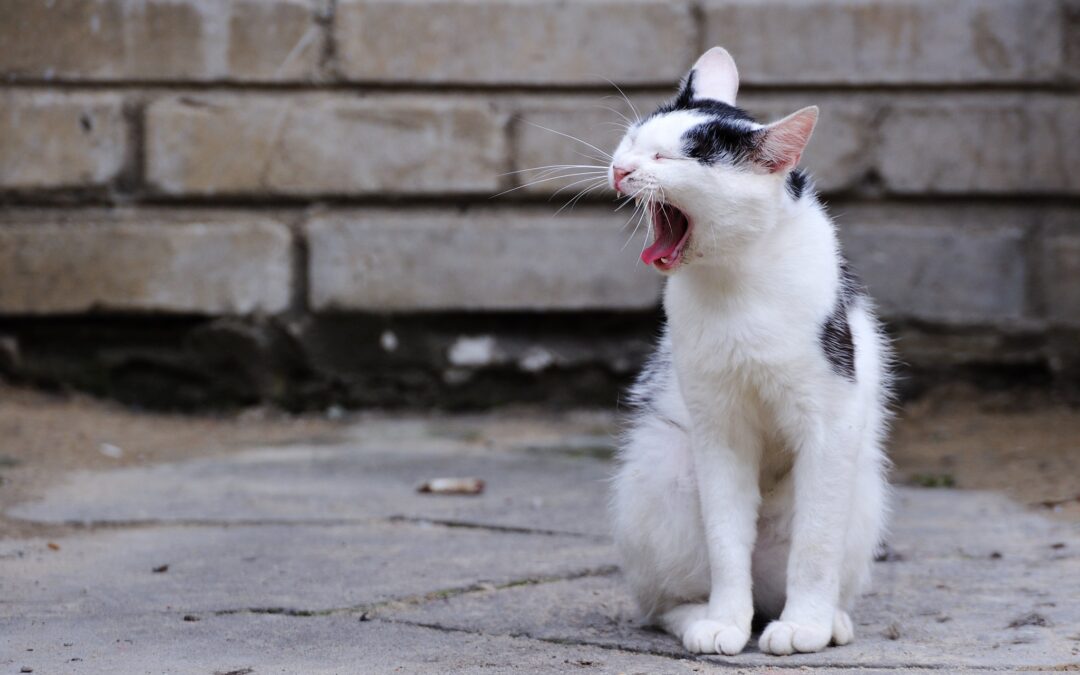Last year, the city of Warsaw spent almost 1.6 million zloty (€355,000) on providing over 235 tonnes of food to feed the near 30,000 free-roaming cats that live on its streets.
Poland’s capital has been supporting its free feline residents, considered an important part of the city’s ecosystem, since 2005, and today more than 2,500 volunteer cat feeders help distribute food and treatment.
Other Polish cities have also rolled out measures to support wild cats, providing food and launching schemes to build shelters. Many have today been celebrating their four-legged friends as Poland, like some other parts of Europe, marks International Cat Day (which is alternatively held in some countries on 8 August).
🐱 Karmel – kot z #Białystok pozdrawia kocich przyjaciół w #dzieńkota i czeka na ich pozdrowienia🙂 Pokażcie swoich czworonożnych przyjaciół w komentarzach 😉 pic.twitter.com/kz5B8lxSUi
— Miasto Białystok (@WBialystok) February 17, 2021
Warsaw’s population of wild cats is split into two groups: those classified as homeless, which are no longer owned and can be put up for adoption, and those that are free roaming. The latter are a permanent part of urban life, according to the city’s website, and help control the population of mice and rats.
A count of Warsaw’s free-roaming cats in 2016 found 29,618 of them resident across the city, with 3,760 in the Mokotów district, 3,000 in Bielany, and 2,800 in Targówek. Most of these cats live in small groups and usually keep their distance from humans.
In 2005, the then mayor of Warsaw, Lech Kaczyński – who, like his twin brother Jarosław, was known for being a cat-lover – launched an initiative to help feed free-roaming cats in the Polish capital, reports Gazeta Wyborcza.
The charity auction of Kaczyński's 'Atlas of Cats', which he famously read in parliament on Friday, has finished, raising over 25,000 zloty for Krakow's animal shelter pic.twitter.com/8WWdTl54fl
— Notes from Poland 🇵🇱 (@notesfrompoland) November 27, 2017
Around 170,000 zloty was made available for use by registered feeders to apply for food. Initial “orders” included requests for mackerel, tuna, rabbit, and pâté. Eventually, a menu of canned and dry food was agreed.
The scheme has continued to run to this day. There were some 2,593 volunteer feeders in Warsaw in 2019, whilst data from last year show that Warsaw cats received over 235 tonnes of food from the city, at a cost of almost 1.6 million zloty.
Since 2005, the city has also supported treatment for free-roaming cats with diseases, as well as helping to reduce and control their population, including organising sterilisation and castration of some animals. NGOs are also able to apply for subsidies from the city for veterinary care and treatment.
In winter, city authorities request that building managers and residents allow free-roaming cats access to basement rooms and provide food and water, to protect them from cold conditions.
Other Polish cities have also rolled out schemes to protect free-roaming cats. In Kraków – which has around 2,500 of them – civil society organisations and individual volunteers provide food for these animals, reports RMF24.
A similar initiative was also organised in Gdańsk, whilst in 2014 the Szczecin Animal Care Society organised a campaign to collect warm shelters for animals in need.
The number of cats adopted from shelters in Poland is increasing year by year, with over 20,000 adopted in 2020, according to Wamiz.pl, a pets website quoted by Gazeta Wyborcza. But the numbers in shelters has also risen, from 21,000 in 2010 to 31,000 in 2019.
Dutch TV interviews Polish academic and former anti-communist activist Jerzy Targalski – but it's his cat that steals the show pic.twitter.com/PJLI1coj8x
— Notes from Poland 🇵🇱 (@notesfrompoland) July 6, 2018
Main image credit: Kuba Bożanowski/Flickr (under CC BY 2.0)

Juliette Bretan is a freelance journalist covering Polish and Eastern European current affairs and culture. Her work has featured on the BBC World Service, and in CityMetric, The Independent, Ozy, New Eastern Europe and Culture.pl.




















